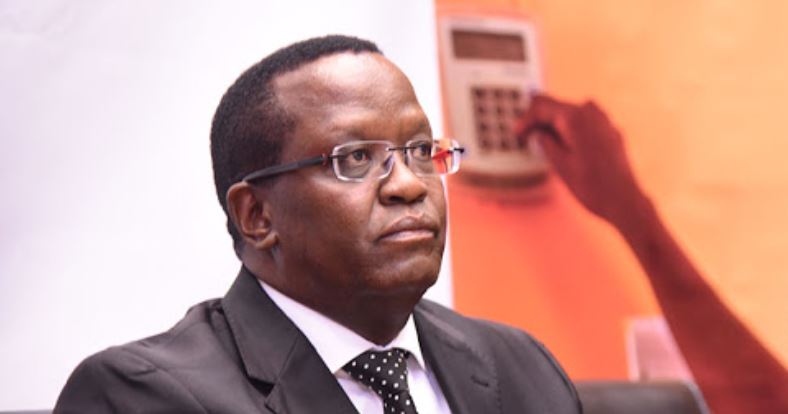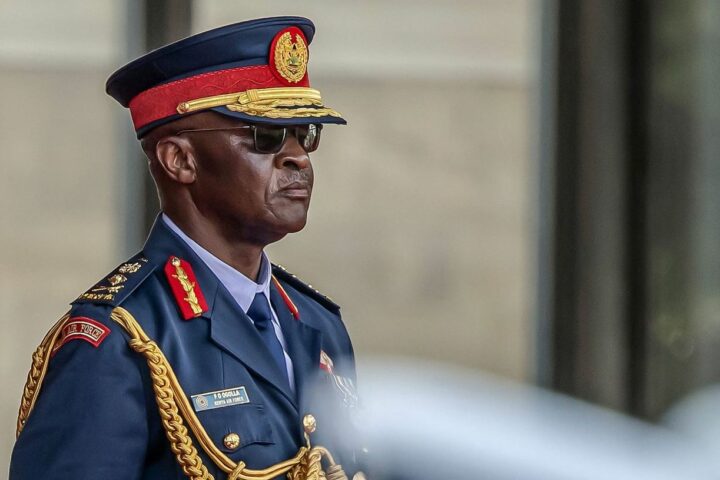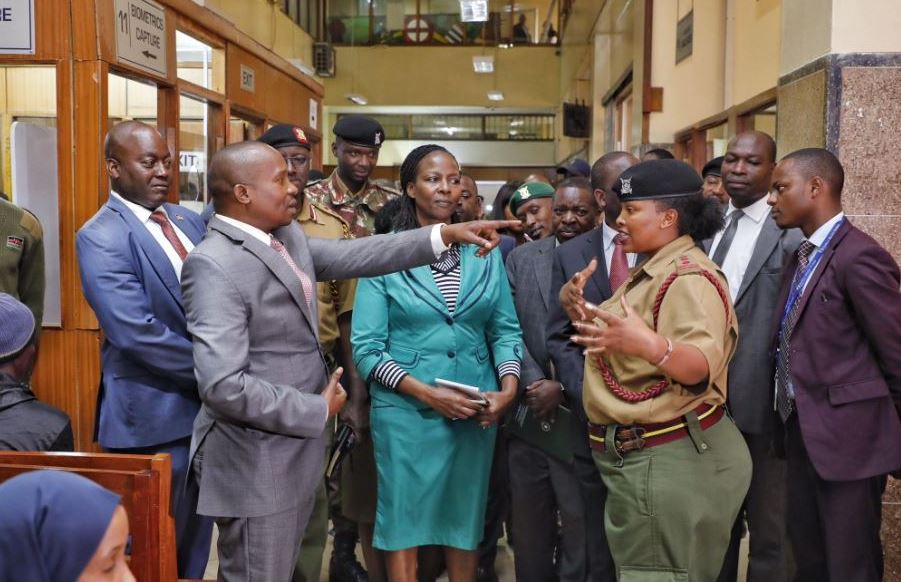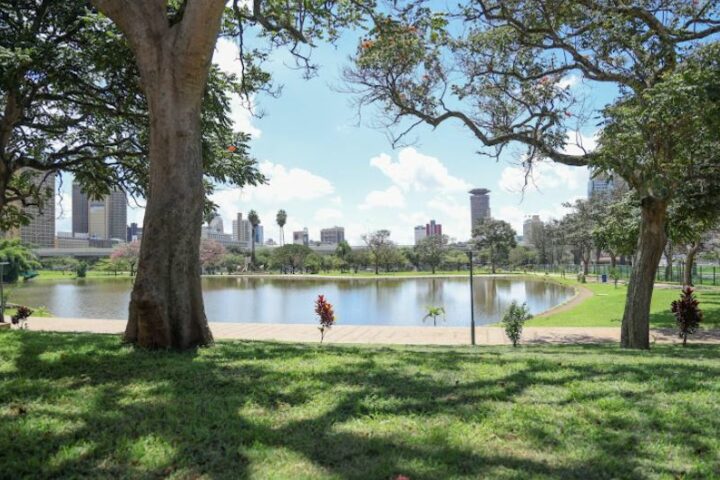
It has been announced that, because of Covid-19, Kenya Power intends to or has declared a force majeure (unforeseen circumstances that prevent fulfilling of a contract) so that it does not honour the contracts it has with independent power generators. For your customers, what does such a move mean? Julius Muia, Nairobi
Force majeure is a clause provided in power purchase contracts as a standard practice and is applied when unforeseeable events such as the ongoing Covid-19 pandemic occur. Kenya Power invoked this clause taking cognisance of decreased electricity demand vis-a-vis supply owing to negative effects of the pandemic on our economy. We are currently in discussion with the electricity generation companies on the best way forward regarding this issue while honouring our contractual obligations. However, this has no impact on our endeavour to provide adequate and stable electricity to our customers.
There is no doubt that the Last-Mile Connectivity programme was a noble idea. However, that your company’s recent report attributed huge losses to the initiative lends credence to views that this is a major scandal involving well-connected former Kenya Power employees. What is your take on this? Komen Moris, Eldoret
I want to agree that the programme is a success story. Kenya Power, as an implementing agent of the project, is committed to ensuring that the government achieves its ultimate goal of universal access by 2022. In implementing the project, contractors are procured through open tenders guided by the Public Procurement and Disposal Act 2015.
They have strict project implementation timelines that are continuously monitored and enforced. In addition, construction works are closely supervised at different levels to ensure quality and efficient workmanship by an appointed independent consultants and project engineers. In cases where we have found fraudulent activity, appropriate action has been taken in accordance with company policies and the law. We encourage the public to report any suspicious activity by our employees, contractors and the general public that is meant to undermine implementation of the project or any of our other services. You can report by sending an email to [email protected] or to any of the investigative agencies.
Kenya Power has over the years been recording declining profits and/or losses. This troubles me because the company is a near monopoly insofar as power distribution is concerned. Could the problem be your systems? Michael Kioko, Mombasa
The company is ISO-certified and operates on internationally accepted processes, best practices and industry standards. As a listed company in the stock exchange, Kenya Power is governed as per the Capital Markets Authority guidelines and is subjected to annual audits. The current financial state of the company is attributable to aggressive investment over the past years in the network expansion, rise in operating costs, increased power purchase costs and slow growth in electricity demand among others. Kenya Power management team is fully seized of these issues and is working closely with key stakeholders to reverse the trend.
It is over one year since the delivery of prepaid meters to customers was disrupted. How soon will the regular supply of meters resume? Dr Patrick Mbataru, Kenyatta University
Our metering policy provides for both prepaid and post-paid options to meet customers’ preferences and also act to mitigate against operational risks. The company has not stopped connecting customers on prepaid meters. In fact, more than five million new customers have been connected on prepaid meters. Early this year, we experienced slight challenges in the supply of prepaid meters, a situation that has since been addressed.
Why are there still so many complaints from Kenyans because of inflated power bills, and in the case of disputes, why does Kenya Power insist on payment of contentious bills before resolution of the dispute? Carey Yiembe, Mombasa
Due to our vast footprint and increasing number of customers, we had previously experienced challenges reading some of our post-paid meters. To address this, we have increased our field presence and devolved our services further in the recent past. We have also introduced USSD*977# and an App (Download MyPower – Kenya Power Self Service App) that empower our customers to read their meters and submit the readings to the company for accurate billing. With respect to contentious bills, we encourage customers to reach out to us with their meter readings. In case of errors, rebilling is done.
Customer complaints on metering, bribes, favouritism and other issues persist and the whistleblowing platform does not and has never worked. What are you doing to change the sorry state? Raphael Obonyo, Nairobi As a company, we have adopted a zero corruption policy hence we do not tolerate corruption in any shape or form, whether perpetrated by employees or customers. In the last one year alone, the company has laid off more than 100 employees for engaging in fraud and other unethical practices. In collaboration with the investigating agencies, we have also arrested several fraudsters and arraigned them in court.
We encourage anyone with a complaint about bribery or any other criminal activity to report it via [email protected] to enable us carry out investigations and take the necessary action. We are also rolling out a new structure based on the counties that has decentralised our services. This structure will see us streamline meter reading, inspection and revenue collection activities and ensure provision of quality power supply to customers.
Kenya Power in 2019 retained Deloitte to audit its information technology (IT) systems. What were some of the findings of that audit insofar as billing is concerned? Daniel Kamau, Nairobi
The audit identified a few gaps within our systems and processes, which some employees had exploited. In mitigation, the company upgraded its systems, including the billing system, to enhance data and information security. We also introduced new security layers and access protocols. Disciplinary action was also taken against those who were found culpable, with some of the implicated staff employment being terminated.
How does Kenya Power ensure that the companies they sub-contract maintain the highest standard of professionalism and that their work is of the highest quality? Githuku Mungai, Nairobi
Kenya Power’s procurement process is guided by the Public Procurement and Disposal Act 2015. The company engages its suppliers/contractors through competitive bidding. All works, services and goods delivered by suppliers/contractors are closely supervised by the KPLC team to ensure that they are done according to the specified standards.
Poor power transmission and an ageing distribution infrastructure will continue to keep our power bills high, despite increased production from cheap power sources such as the geothermal and wind. What is Kenya Power doing to mitigate this? Eric Kimani Njuguna, Ruiru
Over the past five years, we have made substantive investments to revamp, expand and automate our network in order to reduce inherent system losses and ensure quality power supply that is accessible to all. The company is also investing in alternative supply lines and network undergrounding to offer redundancy and ensure supply reliability. The government through our sister company Kenya Electricity Transmission Company (Ketraco) has been building new transmission lines in new areas and also increasing transmission capacity across the country.
There have been suggestions that Kenya Power needs a direct competitor for it to improve on efficiency. What is your take on this? Francis Njuguna, Kibichoi
The Energy Act 2019 allows for competition within the electricity sub-sector although efficiency is not a function of competition. Rather, it is the result of good business practice. As a company, we are continuously evaluating our operations with a view to enhancing our efficiency by embracing new technologies, investing in system automation and in re-engineering our process in line with the changing business environment and customer expectations.
Why is the cost of connecting electricity still out of reach for many Kenyan households? Last month, I applied for electricity and I was informed that the cost of each pole is Sh83,000 and I need around five poles. What is the government doing to reduce these exorbitant costs? Seth Mwangani, Kakamega
Kenya Power is the implementing agency for the Last Mile Connectivity Project which is funded by GOK. The project is on course across the country with a target to attain universal access to electricity by 2022. Customers identified for connection through the Last Mile Project are expected to pay a fee of Sh15,000.
The project is being implemented in phases that do not cover all customers at the same time. For customers who would wish to be connected outside the project, quotations are issued that takes into consideration the material such as poles which cost on average Sh14,000 and not Sh83,000, labour and transport costs of the specific connection. The company always ensures that customers are connected at least cost and where possible encourage customers to apply for connection as a group so as to share the cost.
Amid the poor financial performance, the impact of Covid-19 and the increasing reliance of Kenyans on alternative sources of energy, how will the company remain competitive and relevant? Dan Murugu, Nakuru
Our core business is to sell power. The strategic positioning of the company in social economic development of the country and the emerging business environment post-Covid-19 offers a great opportunity for the company’s financial growth and sustainability. Guided by the current corporate strategic plan, long-term business sustainability is of great importance.
Several strategies and initiatives have been adopted internally as part of the company’s financial recovery plan, which complement efforts by the shareholders and stakeholders in supporting the business’ turnaround strategies.
The power lines from Gitugi Chief’s Camp (Gitugi Division, Mathioya Sub-County) to Kanoro Primary passes through our farms and some people were forced to cut down trees to pave way for the wayleave. Unfortunately, and despite making this sacrifice, there is a good number of people who cannot access power as the transformer is about two kilometres away. We have been told to get power, the affected individuals should meet the cost of transformer. Who is supposed to meet the cost of a transformer? Harrison Katto, Mathioya
Our team will get in touch with Mr Katto to provide him with further guidance on how to resolve this issue.
Project Mrangi Wongonyi in Taita Taveta County started over two years ago. When can we expect to have power? Bill Noti, Taita Taveta
Yes, we do acknowledge that there have been procedural challenges with this project arising from the hand-over of the project from the implementing agency to Kenya Power. Nevertheless, I would wish to confirm that this has now been sorted out and we have connected Mr Noti.
To Kenyans who come from areas where power outages is the order of the day and have to wait for days to be reconnected, what is Kenya Power doing to improve on the power stability so that they too can enjoy being your customers? David M. Kigo, Nairobi
Our core business is to keep the lights on. Outages affect our sales and as such we have been investing in technologies, systems and networks that will ensure less or no outages.
In fact, over the last few years, the company has deployed live line maintenance teams to support network maintenance work and reduce planned outages and system automation to facilitate network self-healing and reduce outage time. In addition, the company is focusing a lot in proactive network maintenance by undertaking transformer and trees maintenance (pruning/cutting down trees near power lines), system reinforcement and where necessary undergrounding of the network.
As stated earlier, we have also deployed a new county structure that will increase our field presence thus enabling us to fast track resolution of customer issues as it increases accountability and efficiency. The structure will positively impact on the turnaround time in addressing outages as we now have dedicated teams to resolve such occurrences.






